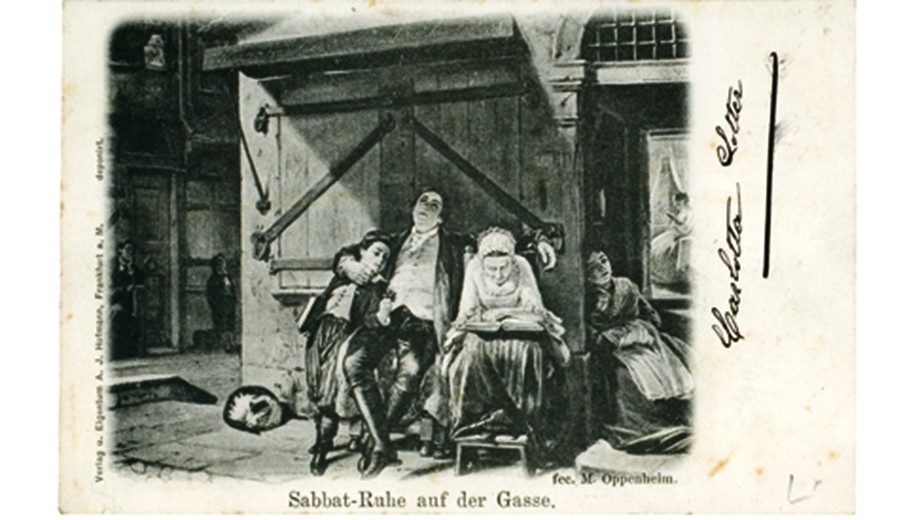In the early 1980s Joyce Zeger Greenberg, AB’52, and her late husband, Jacob Greenberg, traveled to Kaifeng, China, where a small community of Jews had lived since at least 960 CE. “It was very sad,” Greenberg recalls. “A Jewish community had lived there and been accepted for hundreds of years. And there was just nothing left. There was one stele in a museum. There was a street whose name translated as the Street of the Plucked Sinew [a reference to traditional Jewish butchering practices]. And that was it.” The experience so affected her that Greenberg began supporting the preservation of important Jewish sites through the Jewish Heritage Grant Program of the World Monuments Fund.
More recently Greenberg was concerned about reports of anti-Semitic and anti-Israel sentiment and the lack of informed debate on American college campuses. So last fall she made a $2 million gift to establish the Joyce Zeger Greenberg Visiting Professorship in Jewish Studies, which will enhance the ability of the University of Chicago to bring senior scholars to campus through the auspices of the Chicago Center for Jewish Studies. “The only cure for anti-anything is education,” she says.
“There are seven billion people in the world. There are 1.2 billion Muslims, 1.2 billion Catholics. But there are just 13 million Jews. We’re such a small minority. That’s one reason I’m so interested in Jewish history and heritage."
Josef Stern, director of the Center for Jewish Studies and the William H. Colvin Professor of Philosophy, says the endowed visiting professorship “will enable us to bring in distinguished scholars in areas where we have no regular faculty,” such as rabbinics, law and religion, American Jewish history, Sephardic studies, Eastern European Judaism, and the history of Jews in the Islamic world.
In areas where the University does have regular faculty—modern Jewish history, modern Hebrew literature, the Bible, and music, for example—a visiting professor “will help us expand our offerings,” Stern says, allowing students to “hear another voice.”
The center, which brings together faculty and students from the Divisions of the Humanities and Social Sciences as well as the Divinity School, Law School, and the Library, was created only four years ago, but it builds on a tradition of scholarship that dates to the University’s founding. UChicago’s first president, William Rainey Harper, was a Hebrew Bible scholar, and early faculty member Emil Gustav Hirsch was a professor of rabbinical literature and philosophy who also headed the Chicago Sinai Congregation.
Today there are 30 faculty and 90 graduate students engaged in scholarship with impact on the field of Jewish studies, spanning several schools and departments. “We’re such a small minority. That’s one reason I’m so interested in Jewish history and heritage.”The University offers teaching programs in biblical and modern Hebrew, Yiddish, and Judeo-Arabic, as well as in all the modern languages in which Jewish texts are written. The center has organized conferences on topics from the state of American Jewish belief to Israelite archaeology. With the Special Collections Research Center, it sponsored a May 2012 exhibition and lecture series on the Haggadah, a book of prayers and stories recited on Passover. The show was drawn entirely from the collection of Stephen P. Durchslag, a retired lawyer and current student in Jewish studies, whose collection of Haggadot is believed to be the largest in private hands.
Greenberg’s visiting professorship is just one effort to cultivate education about Judaism in Chicago and around the world. Stern organized a conference, “Maimonides and Medieval Jewish Thought,” at the UChicago Center in Beijing last year. It was so successful that he is planning another event in China: a conference on comparative Jewish and Chinese ethics, cosponsored by the Center for Judaic Studies at Shandong University.
In China, Stern notes, Jewish studies is a small but growing field—and an entirely academic interest for its scholars, none of whom are Jewish or interested in religious questions from a personal standpoint. “The students are really impressive—very bright, extremely hard working, really competitive,” he says. “By Chinese standards, the number of students is a drop in the bucket. But it will grow.”

